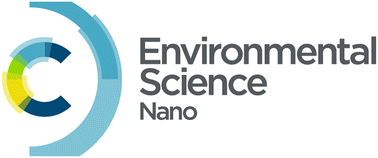Michel Gad
Investigating the fate and behavior of nanoparticles in aquatic environments through advanced analytical techniques and machine learning approaches.

Investigating the fate and behavior of nanoparticles in aquatic environments through advanced analytical techniques and machine learning approaches.

Advancing understanding of environmental processes through analytical chemistry
Investigating the transformation and environmental impact of nanoparticles in surface waters using advanced mass spectrometry techniques.
Characterizing dissolved organic matter composition and its interaction with environmental factors across diverse aquatic systems.
Developing multivariate random forest models to predict molecular composition and environmental behavior patterns.
Advancing research data management through innovative tools
A comprehensive research data lineage platform that integrates with DataLad functionalities and adds interactive visualizations for the complete data lifecycle. SciTrace helps researchers track data transformations, execute code seamlessly, and maintain complete trails of their research data workflows.
Complete traceability of data transformations and processing steps
Integrated code execution within the data management workflow
Visual representation of data flows and dependencies
Ensures Findable, Accessible, Interoperable, and Reusable data
Recent scientific contributions to environmental chemistry

Water Research
2025
Novel correlation-based machine learning model integrating FT-ICR MS data to predict DOM composition and identify key environmental drivers.

Environmental Science: Nano
2025
Novel approach for determining and predicting the ζ-potential of nanoparticles in surface waters using XGBoost models and in-situ exposure methods.

ACS Applied Bio Materials
2022
Advanced bioimaging workflow using immunofluorescence microscopy and LA-ICP-MS for spatial resolution of biomolecules.
Academic journey in environmental analytical chemistry
Leading research on nanoparticle behavior in aquatic environments using advanced mass spectrometry and machine learning approaches.
Collaborative research with Charité applying advanced tissue imaging for early cancer detection and biomarker analysis.
Interested in collaboration or research opportunities?
michel.gad@outlook.com
Helmholtz Centre for Environmental Research (UFZ)
Leipzig, Germany